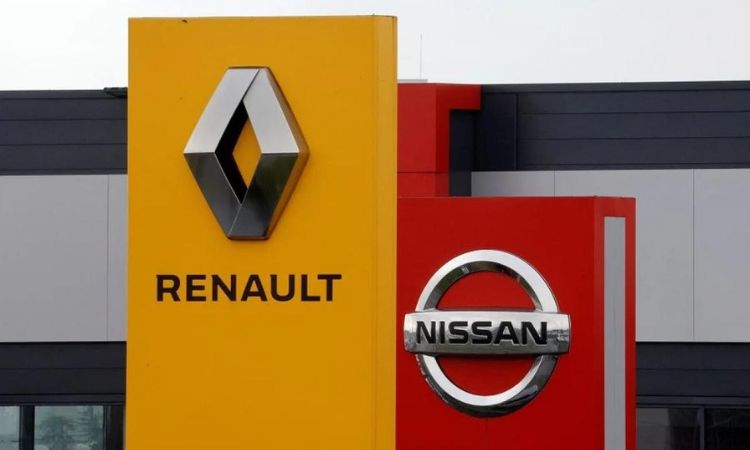Nissan Motor Co. and Renault SA have reached a crucial agreement to invest in the electric-vehicle venture, Ampere, concluding lengthy negotiations to stabilize their troubled automotive alliance. Nissan’s €600 million investment in Ampere and Renault’s reduction of Nissan ownership to 15% mark a pivotal step in their strategy to adapt to the EV market and enhance profitability. The deal signals renewed confidence in their alliance amidst intensifying competition from Tesla Inc. and Chinese EV makers.

Nissan Motor Co. has officially committed to investing in Ampere, Renault SA’s electric-vehicle venture, bringing an end to prolonged negotiations aimed at reinvigorating their troubled automotive alliance.
The investment from Nissan is set to reach up to €600 million ($663 million), as stated in a joint announcement made by the companies on Wednesday. In addition to this, they have formalized an agreement for Renault to reduce its ownership stake in Nissan from 43% to 15%, with the remaining shares being placed in a French trust.
Renault’s CEO, Luca de Meo, expressed his confidence in these agreements, emphasizing that they provide a strong foundation to resume business operations in key global markets and have the potential to generate substantial value. He also highlighted the strategic flexibility that they offer, which is vital in navigating the rapidly evolving automotive landscape.
The Ampere deal serves as a validation of De Meo’s strategy, as he has been restructuring Renault’s corporate framework to address the transition to electric vehicles and bolster profitability. Concurrently, he has been working on resolving issues within the Franco-Japanese alliance, which includes the smaller partner, Mitsubishi Motors Corp. The closure of this deal is expected in the fourth quarter.
Nissan‘s CEO, Makoto Uchida, pointed out that collaborating with Ampere allows them to leverage partnerships with other companies and overcome the challenges of doing business solely in Europe.
Mitsubishi is also considering investing in Ampere, with a decision expected by the end of 2023 at the earliest. This new agreement enables the alliance partners to pursue other projects with greater autonomy. Renault is pooling its traditional combustion-engine assets with China’s Zhejiang Geely Holding Co. and is cooperating with Qualcomm Inc. on semiconductor technologies. Meanwhile, Nissan is actively transitioning to electric vehicles and implementing cost-cutting measures to increase the profitability of each car sold.
The process of finalizing this deal took longer than initially anticipated, with weeks spent resolving issues related to intellectual property and the Ampere investment. Renault had to postpone the IPO of its EV arm in June due to investor feedback.
Cultural differences between France and Japan have historically caused misunderstandings and mutual suspicion within the alliance. The talks almost collapsed last year during a power struggle within Nissan. Fortunately, after the departure of a key Nissan executive, negotiations gained momentum, leading to a more constructive relationship between Renault’s De Meo and Nissan’s Uchida, who have worked together to identify common projects to strengthen the alliance.
Both Renault and Nissan are facing increased pressure from competitors like Tesla Inc. and Chinese EV manufacturers. This situation prompted the partners to salvage their strained relationship, which had been threatened by significant events such as the arrest and subsequent escape of former alliance chief Carlos Ghosn in 2018.














